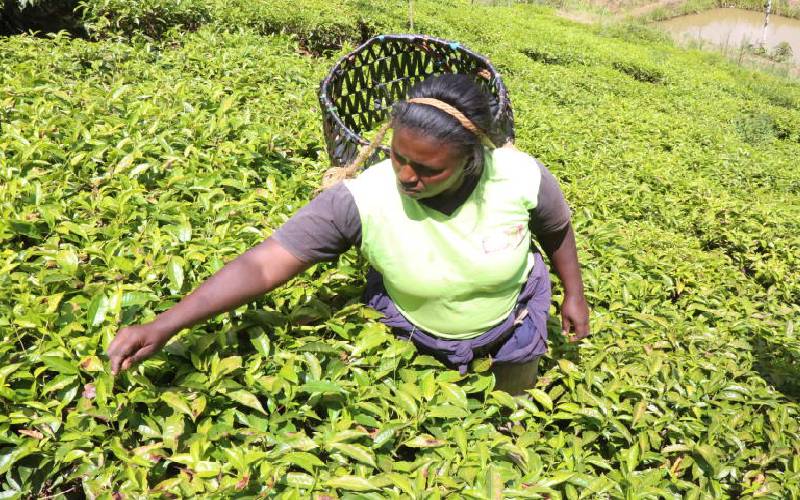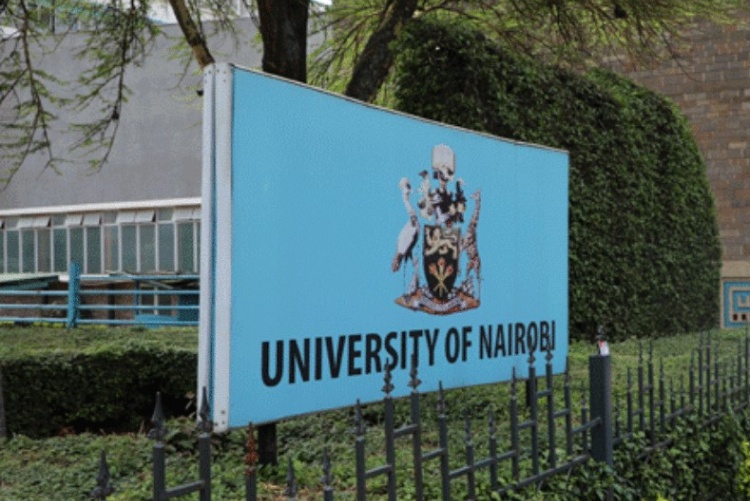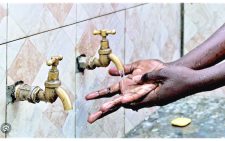Rwandan tea gives Kenya’s green gold run for its money

Small scale tea farmers from Rwanda earn more income than their Kenyan counterparts owing to high quality of the crop.
For the last three crop years, Rwandan tea has been fetching high prices compared to Kenya’s despite the latter still producing the best black tea in the world.
Kenya Tea Growers Association (KTGA) chief executive Appolo Kiarie says the declining quality has to a large extent affected prices both locally and internationally.
If production of poor quality tea continues, Kiarie says, Kenya might lose some of it share in the international market.
In the 2018/19 tea year, farmers received an average of Sh41.3 per kilogramme of green leaf delivered compared to Sh52 in the 2017/18 production year.
“Poor crop husbandry and a messy manufacturing process are to blame for the decline in tea quality. Though we are the leading exporter of black CTC teas in the world, the share might be taken up by other players owing to their improved quality,” says Kiarie.
Mombasa auction
Rwanda produces black, white, green, authentic and organic teas. Kenya’s production currently stands 493.9 million kgs of green-leaves against an annual production of between 20 and 30 million kg in Rwanda.
East Africa Tea Traders Association (Eatta) chief executive Edward Mudibo confirmed that Rwandan tea has been fetching better prices at the Mombasa tea auction compared to tea produced locally.
For instance, a kg of Kenya tea fetched Sh241 against Sh268 for Rwandan tea in 2016.
In 2017, Mudibo said, Rwanda tea was up by $0.22 (Sh22.8).
At the close of 2018 Rwanda registered the highest average price standing at Sh285 against Sh259 for Kenya tea.
“Rwanda’s younger plantation and bush that was revitalised after 1994, excellent standards of agronomy with strict adherence to fine plucking, good volcanic soil, ideal weather that combines the right proportion of adequate rain with sun light and maintenance of production volumes have all worked together to fetch premium returns,” said Mudibo.
Rwanda tea is planted on the hillsides at high altitudes of between 1,900 and 2,500 metres, and on well drained marshes at an altitude of between 1,550 and 1,800 metres.
Mudibo said that the Rwandan government privatised all the tea factories thus enabling farmers and investors to entirely manage the industry.
Crop husbandry
Kenya tea bushes are yet to be revitalised since the crop was first commercialised in the early 1920s by colonialists.
The Rwanda government plays a major role in ensuring good crop husbandry is adhered to. Surprisingly, factories in Rwanda are managed by highly qualified experts from the Kenyan tea industry.
Currently, Kenya has more than 120 tea factories both private and those under the management of the Kenya Tea Development Agency (KTDA) compared to Rwanda which has less than 20 tea factories. This, Mudibo, said makes supervision easy.
By the time the Kenyan green leaf makes its way to the Mombasa auction, it bumps into numerous challenges starting from crop husandly, plucking, transportation and finally processing.
According to Kiarie, establishment of more factories in the country has largely contributed to the falling quality.
Farmers, Kiarie said, do not observe good husbandry practices.
Kipkebe managing director Silas Juma said the quality of tea is further affected during delivery of the crop.
“The hours it takes to pick the tea from the centres for transportation to factories, leads to weight loss. The beating further continues during processing,” said Juma.
Hilda Mugure, a tea consultant, said countries in the region, mainly Tanzania have invested heavily to improve efficiency and thus quality.
Kenya is the leading exporter of black CTC teas in the world accounting for about 23 per cent of the global exports with the Kenya Tea Development Agency accounting for about 13 per cent.










